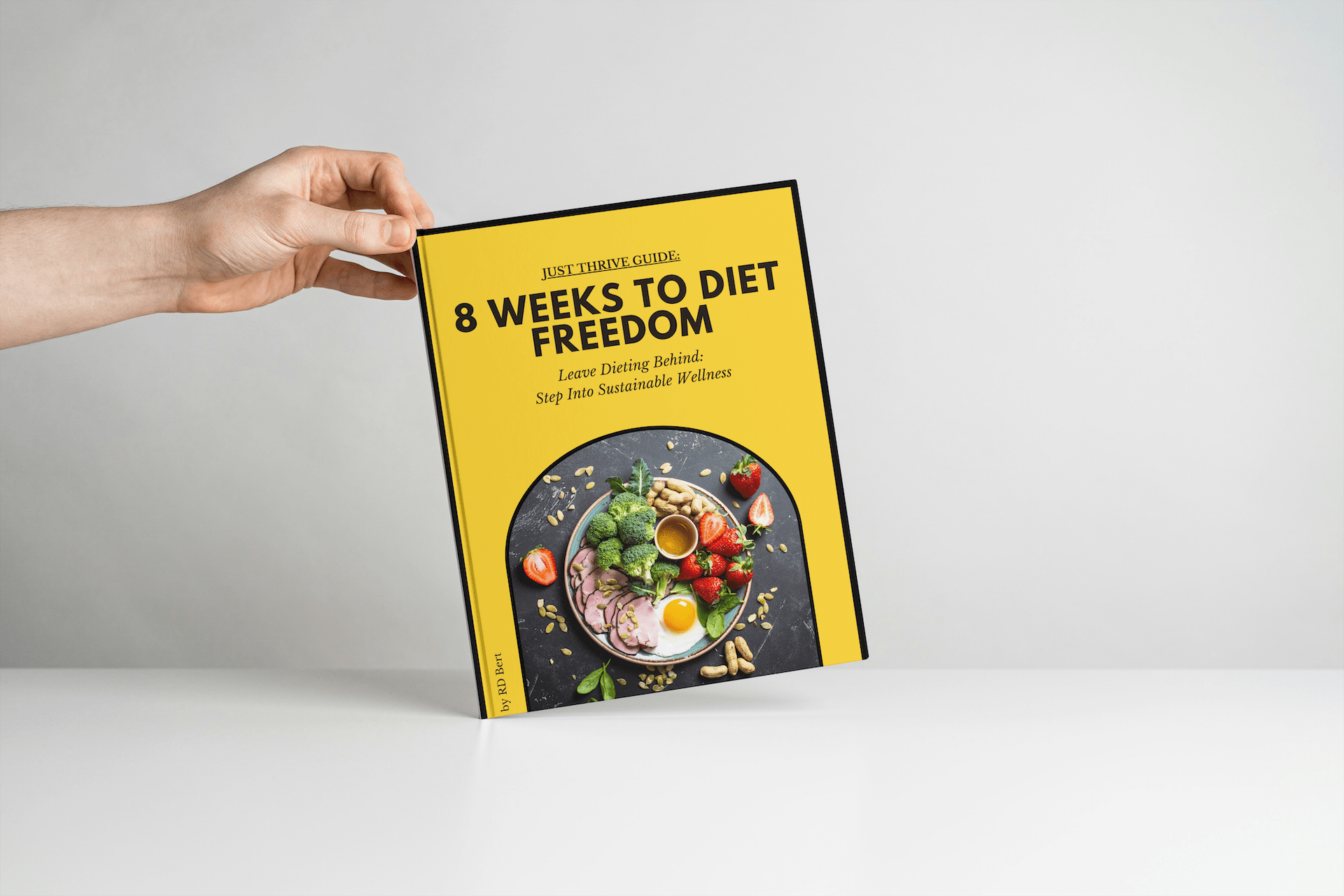Why 95% of diets fail

Imagine two birthday celebrations.
The first is a classic scene: a family gathered around a table, the room filled with the aroma of homemade food. A towering cake, adorned with colorful candles, sits in the center, drawing everyone's attention. As the birthday song begins, you feel a warm glow inside. It's not just the cake that excites you—it's the sense of love and togetherness that fills the room.
The second celebration is different. This time, there’s no cake, no feast, just a small, polite gathering with a few friends. They bring their well-wishes but not much else. You find yourself missing the laughter, the shared dishes, and the comforting familiarity of a celebration steeped in tradition.
Which one sounds more fulfilling? The answer might depend on how much food means to you, but for most people, it’s the first scenario that resonates deeply.
This is because food isn’t just about nourishment—it’s woven into the very fabric of our lives.
Food Is More Than Fuel: It's Emotional
Food occupies an immense space in our minds, far beyond its basic function of keeping us alive. It’s not just something we consume; it’s something we experience.
We buy cookbooks, not only to learn recipes but to explore different cultures and ideas.
We celebrate with food, soothe our sorrows with it, and express love through it. When we're sad, we might reach for a comforting snack, and when we're happy, we might celebrate with a special meal.
Think about it: Cultures around the world are defined by their food. Italian cuisine, Mexican street food, Japanese sushi—all of these are more than just meals. They’re symbols of heritage, pride, and identity.
Every celebration, whether it’s Christmas, Thanksgiving, Diwali, or Eid, has food at its center.
We bond over shared meals, we create memories with loved ones around the dinner table, and we even use food to make new friends.
The Science Behind Our Relationship with Food
Why does food take up so much space in our minds? The answer lies in a combination of psychology and biology.
At a biological level, food is essential for survival. Our brains are hardwired to seek out food, especially those high in calories, because our ancestors needed to store energy for times when food was scarce.
But in the modern world, where food is plentiful, this survival mechanism can lead to overeating, especially with foods high in sugar and fat.
Psychologically, food is deeply intertwined with our emotions. From an early age, we learn to associate food with comfort.
A crying child might be given a cookie to calm down. Over time, this creates a powerful link between food and emotional relief.
When we’re stressed, sad, or even bored, our brains remember that food made us feel better in the past, and so we reach for a snack, often without even realizing it.
Food is also a social glue. Shared meals are one of the most common ways to connect with others. Breaking bread together fosters a sense of community and belonging. This social aspect of food is why celebrations without food feel incomplete.
Why 95% of Diets Fail
Given how deeply ingrained food is in our lives, it’s no wonder that diets often fail. Traditional diets focus on restriction—cutting out certain foods, counting calories, or following rigid meal plans.
But these diets miss the bigger picture: the psychological role food plays in our lives.
When we go on a diet, we’re not just changing what we eat; we’re challenging deeply held habits and emotional connections.
If we don’t address these underlying psychological factors, it’s easy to revert to old eating habits once the diet ends. This is why 95% of diets fail—because they focus on the "what" of eating, not the "why."
A New Approach: Changing Our Relationship with Food
The key to successful weight loss and a healthier lifestyle isn’t dieting; it’s changing our relationship with food. This process is gradual, focusing on one habit at a time. Here’s how to start:
- Mindful Eating: Pay attention to what you eat and why you’re eating it. Are you truly hungry, or are you eating out of habit, boredom, or emotion? By becoming aware of these patterns, you can start to make conscious choices about your food.
- Slow and Steady Changes: Rather than overhauling your diet overnight, start small. For example, try to incorporate more vegetables into your meals, or replace sugary snacks with healthier alternatives. These small changes are more sustainable in the long run.
- Emotional Awareness: Recognize when you’re eating for emotional reasons. Instead of reaching for food, find other ways to cope with your emotions, like going for a walk, talking to a friend, or practicing relaxation techniques.
- Redefine Celebrations: Find ways to celebrate and connect that don’t revolve solely around food. This doesn’t mean eliminating food from celebrations, but rather expanding your definition of what makes a celebration meaningful.
- Cultivate a Positive Food Environment: Surround yourself with a variety of foods that nourish both your body and soul. This means having healthy, enjoyable options on hand and creating a dining atmosphere that’s conducive to mindful eating.
Food as a Path to Self-Understanding
Our relationship with food is complex, rooted in biology, psychology, and culture.
By understanding why food takes up so much mental space, we can begin to shift our focus from dieting to developing a healthier, more mindful relationship with what we eat.
Remember, the journey to better health isn’t about quick fixes or restrictive diets. It’s about understanding the role food plays in our lives and making changes, one habit at a time.
This approach not only leads to sustainable weight loss but also to a more fulfilling, balanced life.
Actionable Advice:
- Start a food journal this week. Note what you eat, why you eat it, and how you feel afterward. This simple act of mindfulness can reveal a lot about your relationship with food.
- Choose one small, positive change to make in your eating habits this week, whether it’s adding an extra serving of vegetables to your dinner or taking a few minutes to savor your meals without distractions.
By taking it one step at a time, you can transform your relationship with food and embrace a healthier, happier lifestyle.
RD Bert
Need a guided framework to break free from dieting?

Are you exhausted from the endless loop of losing weight only to gain it back? "8 Weeks to Diet Freedom" offers more than just a diet—it offers a new perspective on health.
With my step-by-step guidance, you’ll adopt lifelong habits that help you maintain your weight loss permanently, fostering both physical and mental wellness.
Begin your journey towards a more stable, healthier future today!
Click here to start your journey to diet freedom today!